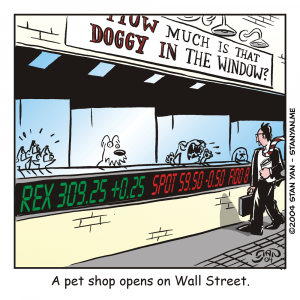In a deep discussion with his trading coach, Jack confides, “I win sometimes, but when I lose, I lose big.” His coach asks, “Why are you putting on big trades? Do you see a high probability setup that warrants increasing your position size?” Jack admits, “I don’t have a good reason. I just want to put on a big trade to make huge profits.” Frustrated with Jack, his coach says, “But if you don’t have a sound reason for the trade, why put it on and take such a big risk?” Confused and flustered, Jack says, “I just need to make big profits. I’ve got my dreams and ambitions. I want to be a success, so I’ll finally get the respect I’ve always wanted.”
Jack is human. He has craved success and trading offers him a way of gaining success in life. But Jack carries around a lot of “psychological baggage.” In other words, he has unresolved past conflicts that use up his limited psychological resources, interferes with his concentration, and don’t let him focus objectively on his trading. His motives to trade successfully are coloured by unmet psychological needs, and this baggage prevents him from trading calmly and without bias. Not all traders carry psychological baggage, but if you are one of them, it would be wise to acknowledge the problems you have in this area and work them out.
There are many kinds of psychological baggage (since it’s not a precise scientific term in the fields of clinical psychology and psychiatry, but it suitably addresses a prevalent issue.) Carrying psychological baggage with you is not exactly the same thing as merely having disturbing memories of past trading losses; it’s deeper than that. For example, many traders face severe drawdowns in which they have made trade after losing trade before finally hitting a winning streak.
During the times of severe drawdown, some traders, especially novices, may feel a little disappointed, and thus, they may be carrying around a little psychological baggage, but not necessarily a lot. Ideally, a trader with no psychological baggage views the drawdown as nothing more than one of the everyday vicissitudes of trading. Trading is based on odds, and the odds are such that even a top-notch trader may face a drawdown. So it’s best to look at a drawdown as nothing more than a minor temporary setback and press on.
But for the trader with psychological baggage, the drawdown may take on greater significance: it may represent a “personal failure.” When a minor event starts to symbolize a “bigger issue,” it often reflects long-standing unresolved psychological conflicts. When a trader starts thinking, “I don’t have the skills to get past this drawdown,” or “This drawdown exemplifies my ineptitude as a person,” he or she is carrying psychological baggage from the past into the current trading situation. Although psychological baggage is often deep-seated and reflects long-standing unresolved conflicts, it can be resolved over time through intense self-reflection and introspection.
Carrying around psychological baggage influences what you do. Regardless of how much actual financial capital you have on the line in a given trade, the trader with psychological baggage has personal emotional capital on the line as well. In addition to the money, such traders have their self-esteem and self-worth on the line.
The trade holds colossal psychological significance, and should the trade be a loser, its impact has even greater personal impact. When the pressure is on, even the best of us may wither under the strain. The weight of psychological baggage puts even more pressure on the trader. There’s a hidden agenda in each trade. Not only must the trade be a winner, but it must also validate one’s personal value.
Trading is hard enough without placing extra pressure on oneself. Don’t carry extra dead weight by carrying heavy psychological baggage. Lighten your load. Identify your psychological baggage and cast it aside. You’ll find you can think more clearly and decisively. You can focus your attention more easily, trade your plan, and watch the profits roll in.


